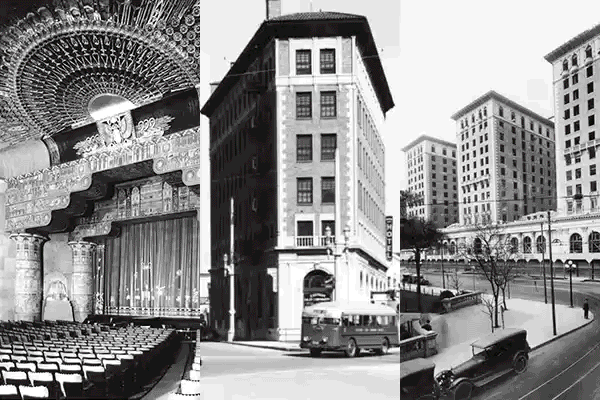Open Arms : Yorba Linda, Birthplace of Nixon, Is Proud to Be Chosen as Home of His Presidential Library
- Share via
Boston battled with the Kennedys for 15 years before the John F. Kennedy Library was finally built. Atlantans clucked over the special expressway that would lead to Jimmy Carter’s. Ronald Reagan’s supporters had to take their plans to second-choice Ventura County after encountering opposition from Stanford University. And two places turned down the archives of Richard Milhous Nixon.
But Yorba Linda is more than happy to be home to the presidential library of the only U.S. leader to resign.
The warm welcome is in part a testament to the city’s lingering affection for the native who rose to the most powerful position in the world. But it also speaks of the independent spirit of a town carved out of unincorporated land 20 years ago by residents who wanted to preserve its rustic character.
“There never was that animosity or feeling of talking about his--what do you call it--resigning or whatever,” said Frieda Smith, 70, who has lived in the Yorba Linda area since 1922. “We looked on his good side.”
Smith, whose husband went to school with Nixon, described the man as a “quiet person, but he gave you the time of day, just like a Yorba Linda citizen. We all have a family instinct about him. I guess you call it old binding ties, like family.”
Even many who never personally knew Nixon say they feel a bond.
“Some day old Richard M. Nixon will go down as a great President,” mused Greg Friga, 38, owner of the Yorba Linda Unocal 76 service station at the foot of Main Street. “All the others were up to the same stuff. He just got his fingers caught in the cookie jar.”
And Friga, like most residents, welcomes the $25-million library, scheduled to be built next year on the grounds of the Nixon family’s five-acre homestead at Yorba Linda Boulevard and Eureka Avenue.
‘On the Map’
“People want to bring some fame to the city,” he said. “I guess we feel it will put us on the map. You say you’re from Yorba Linda, and people say, ‘Where’s that?’ ”
“Some thought he brought shame here, but most of us are over it now,” Friga said of the town’s most famous native.
Nixon was born 75 years ago in a wood frame house that his father built in the middle of a lemon grove. Francis A. Nixon, a Quaker pioneer, had come to Yorba Linda in 1908. Nixon’s mother’s family, the Milhouses, founded the Friends church in Yorba Linda. The lemon trees are gone, but the house, tended by town residents, still stands.
With Nixon’s elections to vice president and President, the home was marked with plaques. Later, residents named a park and an elementary school after him, and the Yorba Linda city seal bears a rendering of the home above the motto, “The Birthplace of Richard Nixon.” (Nixon now lives in exclusive Saddle River, N.J.)
Nixon representatives approached Yorba Linda officials in 1986 about putting the library on the property. A lot of other cities would have told them to get lost, said Bruce M. Cook, the city’s senior planner. “After all, Nixon didn’t exactly go out (of the White House) in a rosy glow,” Cook said.
Not Yorba Linda.
The proposal “wasn’t a threat to anyone’s neighborhood,” Cook said, “so it wasn’t a big deal. I think there is a lot of pride. They welcomed him with open arms.”
No Protest
Indeed, in a series of public meetings spanning more than six months, no one protested the library.
“At no point . . . was there ever any antagonism or opposition,” said Mayor Roland E. Bigonger, who has spearheaded the efforts here to preserve the original Nixon house. “Why there hasn’t been any, I can’t say. Some snide remarks, but never any public protest.”
Indeed, pride in its Nixon connection led to an intercity row with neighboring Whittier over which was Nixon’s real hometown. The spat was settled in 1968 with a compromise: Whittier, where the Nixon family moved in 1922, would be known as the “hometown” and Yorba Linda as the “birthplace.”
Through the 1960s, Yorba Linda remained much as it had been in the early part of the century--an arid sprawl of avocado and lemon groves, ranches and packinghouses. In 1967, residents voted 3 to 1 to incorporate, avoiding annexation by a bigger neighbor.
“We wanted to preserve our rural character,” said Bigonger, who was elected the city’s first mayor.
Still a Hitching Post
The rural way of life is still very much evident in this town of 46,000 nestled on the western slopes of the Chino Hills. Modern tract houses dot the hillsides, but a hitching post still stands behind the McDonald’s restaurant downtown. Horses, which number one to every 40 residents, still have the right of way over cars, and children still scamper in the arroyo that cuts by the old Nixon house--the arroyo where a young President-to-be used to play with his friends after school.
The Nixon Library, unlike recent proposals for an auto mall and a movie theater (both rejected), is viewed as “in the right place in Yorba Linda,” said Carol Metz, president of the Yorba Linda Country Riders, an equestrian club. “And people feel some kind of obligation to Nixon.”
There are not even any hard feelings about being the library site of third choice, after San Clemente and Duke University in North Carolina.
“I was told the President always had a soft feeling for Yorba Linda,” Bigonger said.
“I’m not suggesting to you that the man didn’t make some mistakes,” he said. “But I think there’s a pride in Yorba Linda. And this is the birthplace of the man.”
More to Read
Sign up for Essential California
The most important California stories and recommendations in your inbox every morning.
You may occasionally receive promotional content from the Los Angeles Times.













